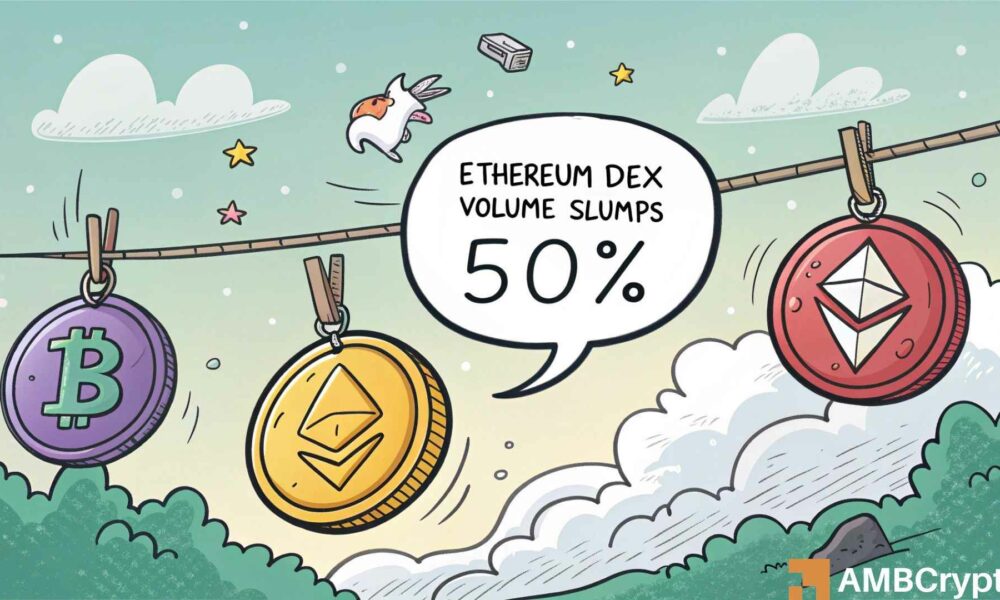- Solana’s DEX volume is now providing strong competition to the overall Ethereum ecosystem.
- New Ethereum-based DEX aggregators like Bebop and CoWSwap are improving liquidity and pricing, making DEXs more user-friendly and competitive.
Amid the ongoing tariff war, the Ethereum [ETH] Decentralized Exchange (DEX) trading volume has been hit hard, plummeting by 50% from its all-time high recorded during the peak in December 2024.
Ethereum’s DEX volume fell from $112 billion in December 2024 to $57 billion in March 2025, a nearly 50% decline from its peak.
This sharp decline reflects cautious behavior from traders and investors amid a bearish market sentiment. Despite the decline, ETH still maintains a strong share of spot trading volume.
Uniswap [UNI] remains the dominant platform, while competitors like SushiSwap [SUSHI] lag, attracting only 2,000 daily active addresses.
A recent Ainvest report highlights not only declining Ethereum DEX volume but also a significant drop in unique trader addresses, now down to 40,000.
The report attributes this trend to both bearish sentiment and increased competition from other DEXs and centralized exchanges (CEXs).
Solana DEXs volume on the rise
On the other hand, cheaper trading platforms have always been strong competitors to Ethereum-based DEXs.
According to recent data from VanEck, Solana’s [SOL] DEX volume is giving tough competition to the overall Ethereum ecosystem. On-chain volume surged 43% in February 2025, surpassing the combined DEX volume of ETH and its Layer-2 networks.
Recently, Matthew Sigel, VanEck’s Head of Research, posted on X (formerly Twitter), stating,
“Despite the memecoin meltdown, Solana DEX volumes are still holding their own—roughly matching the entire ETH ecosystem (L1 + L2s).”
Why is Ethereum DEX volume declining?
With declining trading volumes, traders are prioritizing platform performance, focusing on liquidity, transaction speed, and fees. Ethereum-based DEXs often incur higher costs.
However, new DEX aggregators like Bebop and CoWSwap are tackling these challenges. By improving liquidity and offering better pricing, they aim to enhance user experience and attract more traders to DEX platforms.
In summary, these factors have impacted DEX volumes. However, the prevailing market sentiment plays a crucial role.
Since December 2024, Ethereum has lost over 60% of its value. It faces the risk of further declines in the near future.
















No comments yet